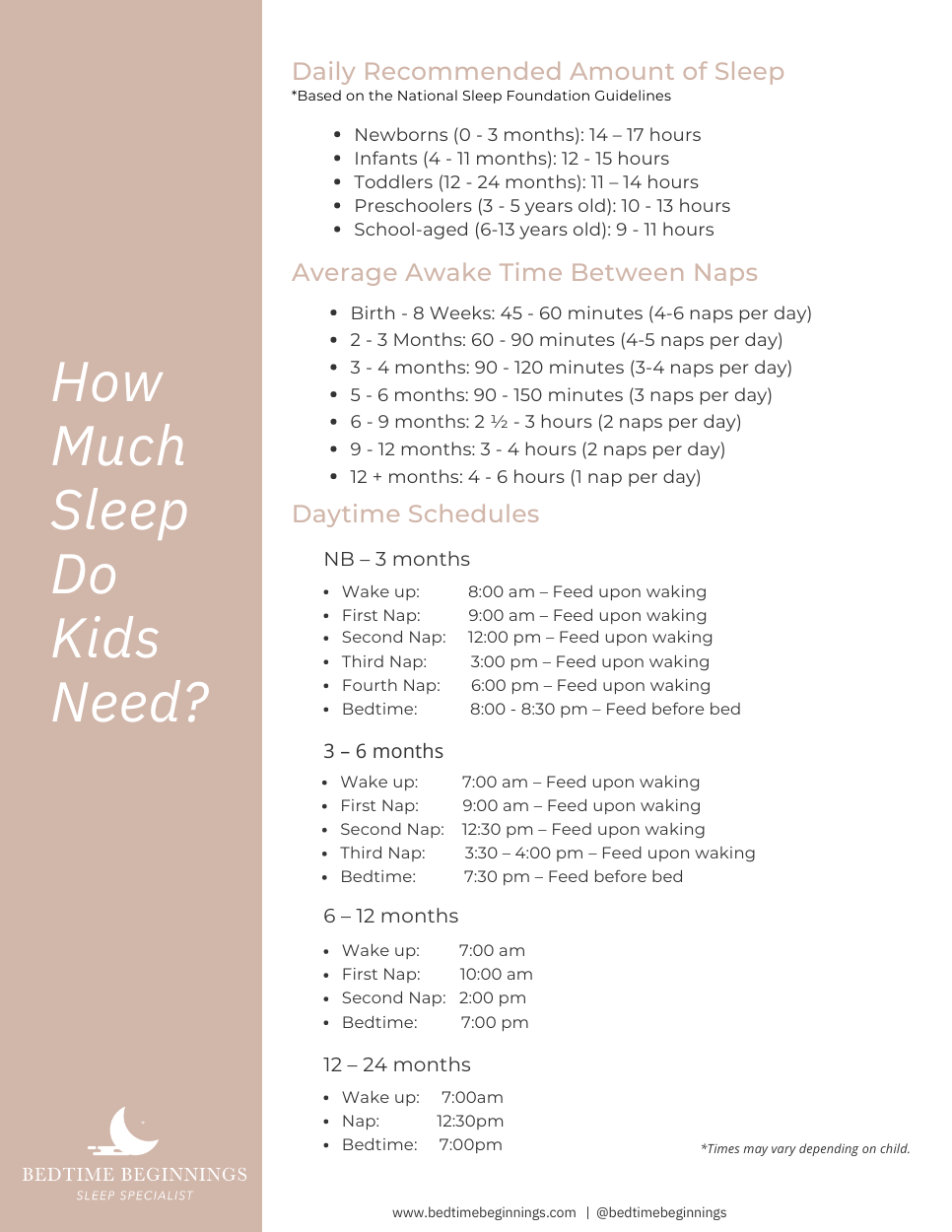
When we speak with parents, we often hear that their children may be getting the right amount of overall sleep, when their daytime sleep is considered… but what does it mean for their nights?
On average children who are aged 4 to 11 months of age should be getting between 12 to 15 hours of sleep in a 24 hour period.
The goal is to try and achieve 11 to 12 of those hours overnight and the balance to be used throughout the day… but what does it mean if the bulk of those hours are appearing in the day instead of overnight.
Often what we see is if children are receiving too much daytime sleep, and are on the higher end of what is needed, we may begin to see this interfere with their ability to consolidate their sleep throughout the night.
Have you ever put your child down for bed only to find them wide awake at 3:00am, still seeming tired and frustrated but not able to get back to sleep?
Although their can be a variety of factors that can play a part into this, (like how our children are falling asleep, time for a nap transition, and/or if they got overtired), if we have an independent sleeper experiencing these issues and we can cross off other factors, it may just be that their daytime sleep bank is taking away from their nighttime allotment.
So you may wonder why does this happen? In order for our children to be able to fall asleep easily and stay asleep, we need to ensure the correct amount of sleep pressure, (also known as adenosine), has build up prior to naptime and bedtime.
If our children are not awake for long enough, or if they have had too much daytime sleep, they may struggle to stay asleep because they are not fully tired. Of course when our children are ill, there are always exceptions to this rule, but you should quickly be able to see when that extra daytime sleep is no longer serving them well and their bodies are on the road to recovery.
We’ve covered infants, but a similar thing can also happen to our toddlers around that 2 ½ to 3 ½ year of age mark, when they may be starting to experience that nap transition. With this being said, we do not want to automatically remove a nap, our goal is always to offer our children as much sleep as possible and then balance out the daytime sleep to support their nights.
A good rule of thumb that is may be time to transition to no nap is if:
-
- Your child is taking longer then 20 minutes to fall asleep (and this is a new change for them)
- If you start experiencing pockets of wakefulness overnight, where your child just does not seem tired
- If you have capped naps at 45 minutes and bedtime is still getting past 8:00 – 8:30pm and it is still taking them a while to fall asleep
We always have to ask ourselves, does an 1 ½ hour nap during the day, make up for disrupted sleep overnight, where we may see our children falling asleep at 9:00pm but still waking by 6:00am (only 9 hours of sleep overnight). Instead what we would like to see, is removing the nap (when it is time), and shifting bedtime as early as 6:30pm during this transition… we can likely see our children get over 12 hours when we first make this shift!
Finally, the last area we like to look at is…are our children just meeting the minimums of their total sleep needs? Of course every child has different sleep needs, but are we just settling because they meet the minimums? Again our goal is always to offer our children as much sleep as possible, with the bulk of it being overnight, and then balancing our their days to support their nights.
If your child isn’t getting the sleep they need, or is just meeting the minimums and you aren’t sure how to make a change, be sure to reach out to us and we will find a time to connect to discuss your child and your specific situation.
Bedtime Beginnings is a team of Pediatric & Adult Sleep Consultants from Southwestern Ontario, Canada. We help exhausted parents teach their infants & toddlers to sleep well every night with gentle, customized solutions and both group and private coaching options, so your family can all be at their best. Our team can support families in home and also virtually around the globe to ensure everyone is sleeping their best.
Follow us on Instagram for more tips to help you and your family get back to sleeping well each night, you deserve it.
If you haven’t been sleeping well please reach out for a friendly no-obligation phone call to help you and your family get back the rest you deserve.

